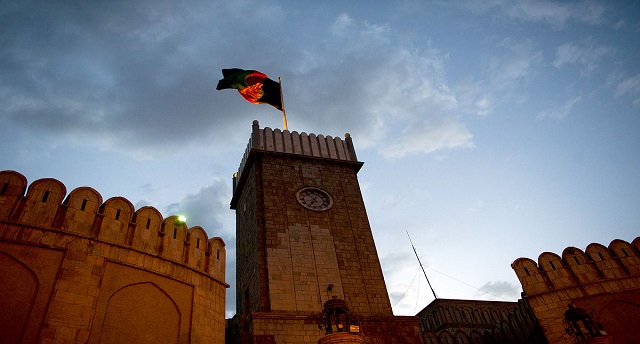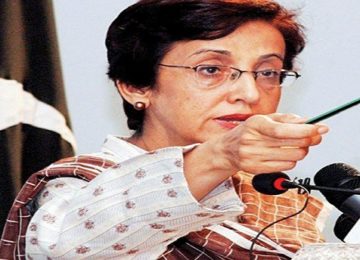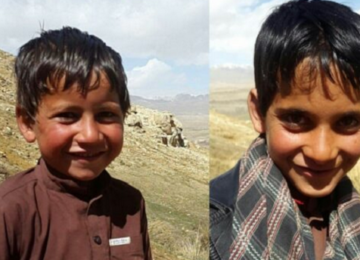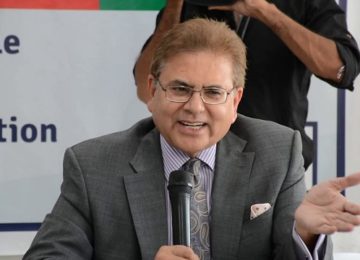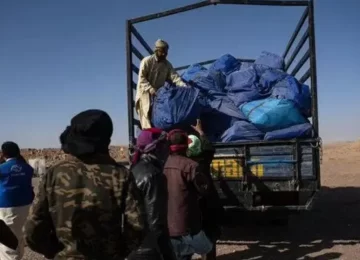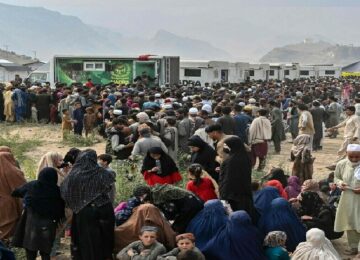Pakistani Prime Minister Shahid Khaqan Abbasi is set to travel to Kabul for talks with Afghan President Ashraf Ghani, Pakistan’s foreign ministry says, the latest in a series of engagements aimed at reducing mistrust between the two neighbours.
Abbasi will hold talks with Ghani, Afghan Chief Executive Abdullah Abdullah and other senior officials in the Afghan capital on Friday, said Pakistan’s Minister of Foreign Affairs Spokesperson Muhammad Faisal in a statement.
The talks will focus on “strengthening bilateral political, economic, security and counter-terrorism cooperation, return of Afghan refugees, combating drug production and narco-trade, [the] Afghan peace process and regional political and security situation”, the statement read.
Abbasi will be seeking to lessen mistrust with Afghanistan, whose leadership has repeatedly held Pakistan responsible for allegedly offering safe haven to leaders of the Afghan Taliban and Haqqani Network.
Pakistan, in turn, accuses Afghanistan of not doing enough against Pakistan Taliban, known by the acronym TTP, fighters.
Last month, Ghani offered to open negotiations with the Afghan Taliban despite ongoing attacks “without preconditions”.
A previous initiative that brought Afghan Taliban and government leaders into direct negotiations – facilitated by Pakistan, the United States and China – broke down in 2016, after then-Taliban chief Mullah Akhtar Mansour was killed in a US drone attack on Pakistani soil.
Pakistan says that while it may have held influence over the Afghan Taliban leadership in the past, that is no longer the case.
“Perhaps we had some effect on the Taliban in the past, but now we don’t have that kind of control,” Pakistani Foreign Secretary Tehmina Janjua told reporters last month during a visit to the US capital Washington, DC.
Janjua visited Kabul earlier this week to pave the way for Abbasi’s visit, meeting with top Afghan officials alongside senior Pakistani military officials, including Director General of Military Operations Major General Sahir Shamshad Mirza.
The two sides held talks on developing a new bilateral engagement mechanism labeled the Afghanistan-Pakistan Action Plan for Peace and Solidarity (APAPPS).
“While some progress was made, substantial issues remain to be discussed in the future,” read an Afghan statement on the meeting.
Slim chance of breakthrough
Given the apparently irreconcilable positions of the two countries, analysts warn that expectations for a breakthrough should not be high for the talks on Friday.
“I do not expect a major breakthrough from the talks – there will be statements and maybe some small initiatives, but ground realities won’t change so quickly,” said Hasan Askari Rizvi, an Islamabad-based security analyst.
“Changing the pattern of the relationship requires taking risk on the part of the leadership of both countries… Both talk of peace and both want to fight terrorism, but the problem is that we have no indications that they are actually willing to cooperate with each other.”
Pakistan has come under increasing pressure from erstwhile ally the US since President Donald Trump took office. In January, the US cut more than $1.1bn in military aid to Pakistan, saying the country was not doing enough against the Afghan Taliban and Haqqani network.
Relations between the two countries have been fraught since then, although they have engaged frequently at the diplomatic level to resolve the crisis.
Senior US State Department official Alice Wells left Pakistan on Tuesday, after a week-long trip that saw her meet Janjua, as well as Pakistan’s army chief, interior minister, de facto finance minister, and other senior officials.
“In the aftermath of the [President Ghani’s offer of talks to the Taliban], Ambassador Wells noted the growing international consensus on the way forward to achieving peace in Afghanistan and the meaningful role that Pakistan, partnering with the United States, could play in achieving a peaceful resolution in Afghanistan,” read a US statement on her trip.
Analysts say that while Pakistan-US engagements have been positive, there has been little concrete change.
“Pakistan-US relations are not deteriorating further, that is the only progress,” said Rizvi. “They have not gotten worse from the point that they were when President Trump [cut military aid].”
Pakistan has also raised several issues with the Afghan and US leadership regarding the alleged presence in Afghanistan of the TTP, which it says carry out attacks in Pakistan while based in the Afghan provinces of Nangarhar and Kunar.
To fight that threat, Pakistan has begun building a 12-foot high fence and dozens of border patrol forts along the largely porous 2,600km long border it shares with Afghanistan.
Afghanistan disputes the border and has repeatedly objected to the construction of the fence.
Pakistan is also home to more than 1.39 million Afghan refugees, many of whom have been resident in the country for more than 30 years. Part of Pakistan’s counterterrorism efforts have included the repatriation of Afghan refugees, which it says Afghanistan is not doing enough to take back.
In a move aimed at lessening tensions, however, Prime Minister Abbasi will also be discussing proposals to facilitate medical treatment and education for Afghan nationals resident in Pakistan, as well as easing travel between the countries.
This report originally appeared on the Al Jazeera News Website on April 5, 2018. Original link.
Disclaimer: Views expressed on this blog are not necessarily endorsed or supported by the Center for Research and Security Studies, Islamabad.



